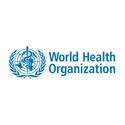In short
The COVID-19 pandemic exerted tremendous strain on the health care system and workforce in most countries, and Belgium is no exception. The unprecedented threat caused by this new coronavirus prompted hospitals to reorganize their services, increase emergency and intensive care capacity, ensure the provision of appropriate equipment for both patients and staff, and reinforce the health care labor force. But such crises inevitably reveal the weaknesses of a system. In our health system, hospital staff may have been the unfortunate witness or even victim of the structural breaches and their consequences. Experiencing close contact with COVID patients and a massive loss of human lives, while protective means might not have been readily available to face the epidemic, may have increased the fear of contamination and transmission among first line health professionals, as well as feelings of distress and insecurity. This stressful situation can have longstanding negative impacts on the mental health of those concerned.
Project description
The COVID-19 HEROES international project aims to describe and assess the impact of the COVID-19 pandemic on mental and social health among first line health care workers (HCW), a population at elevated risk due to their exposure to infected patients and their heavy working conditions during the pandemic, and follow this cohort for 12 months (at baseline and at 3, 6, 12 months).
In Belgium, this project adjoins the ongoing prospective cohort study on SARS-CoV-2 prevalence, seroprevalence and seroconversion among 850 HCW in 17 randomly selected hospitals across the country (50 HCW per hospital). Participants are invited to answer an ad-hoc online questionnaire (about 15 minutes), which includes questions that screen psychiatric symptoms (PHQ-9, GHQ-12, PTSD), behavioral and social factors, as well as information on socio-demographic items, work situation, testing and results for Covid-19, etc… The advantage of joining these two studies is the opportunity to prospectively assess differences in mental health impact between HCW who got infected with COVID-19 and those who did not.
The project aims to :
- To assess the impact of the COVID-19 pandemic on mental health and social factors among Belgian hospital HCW, and to compare the estimates at national (general population data) and international (HEROES study) levels.
- To inform health policy makers of the potential impact of the COVID-19 crisis on the mental health and well-being of health care professionals.
- To formulate recommendations for interventions, for example, the organization of psychosocial help for hospital staff as an inherent part of crisis management in the health care sector.
Sciensano's project investigator(s):
Partners





